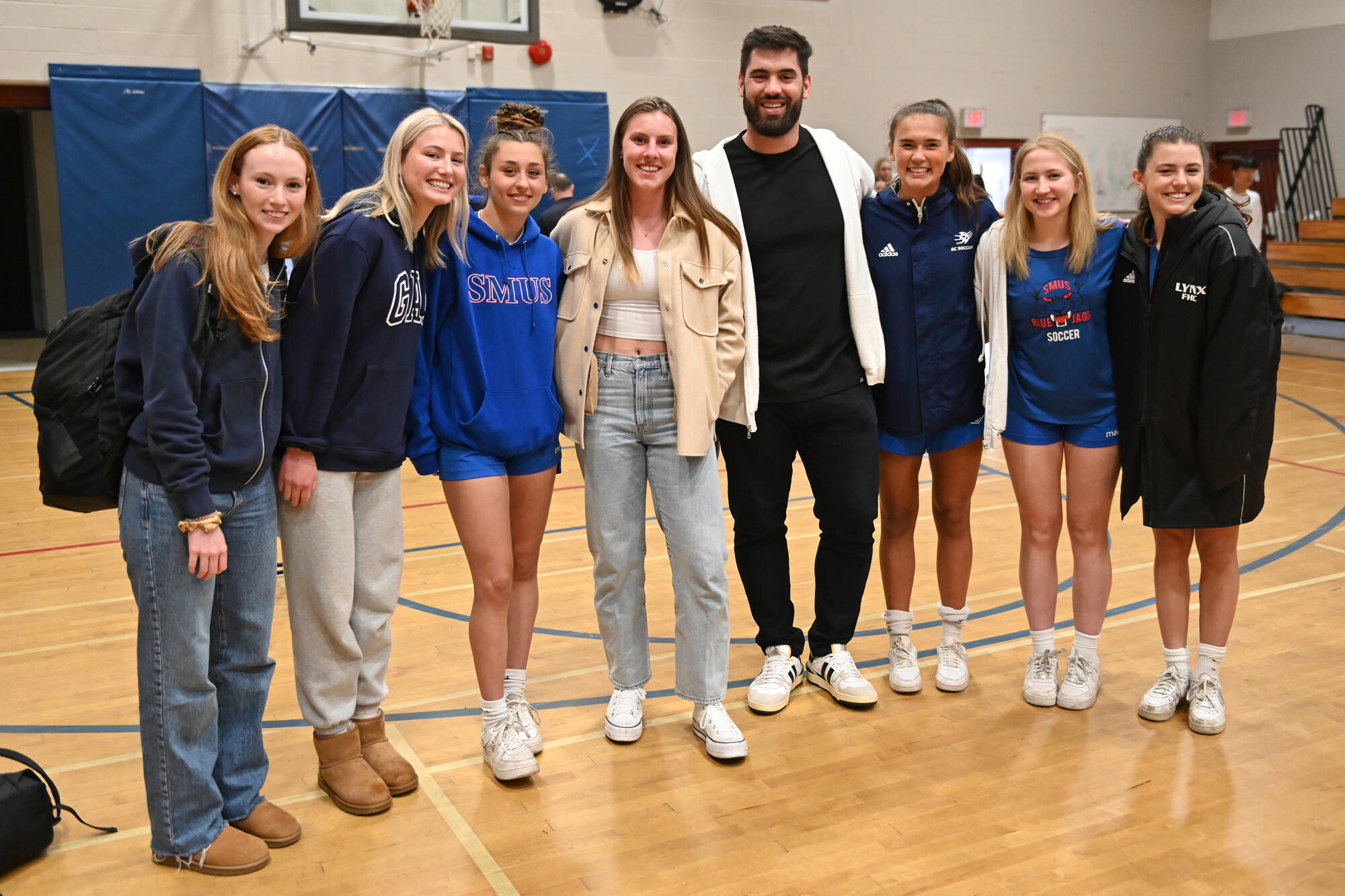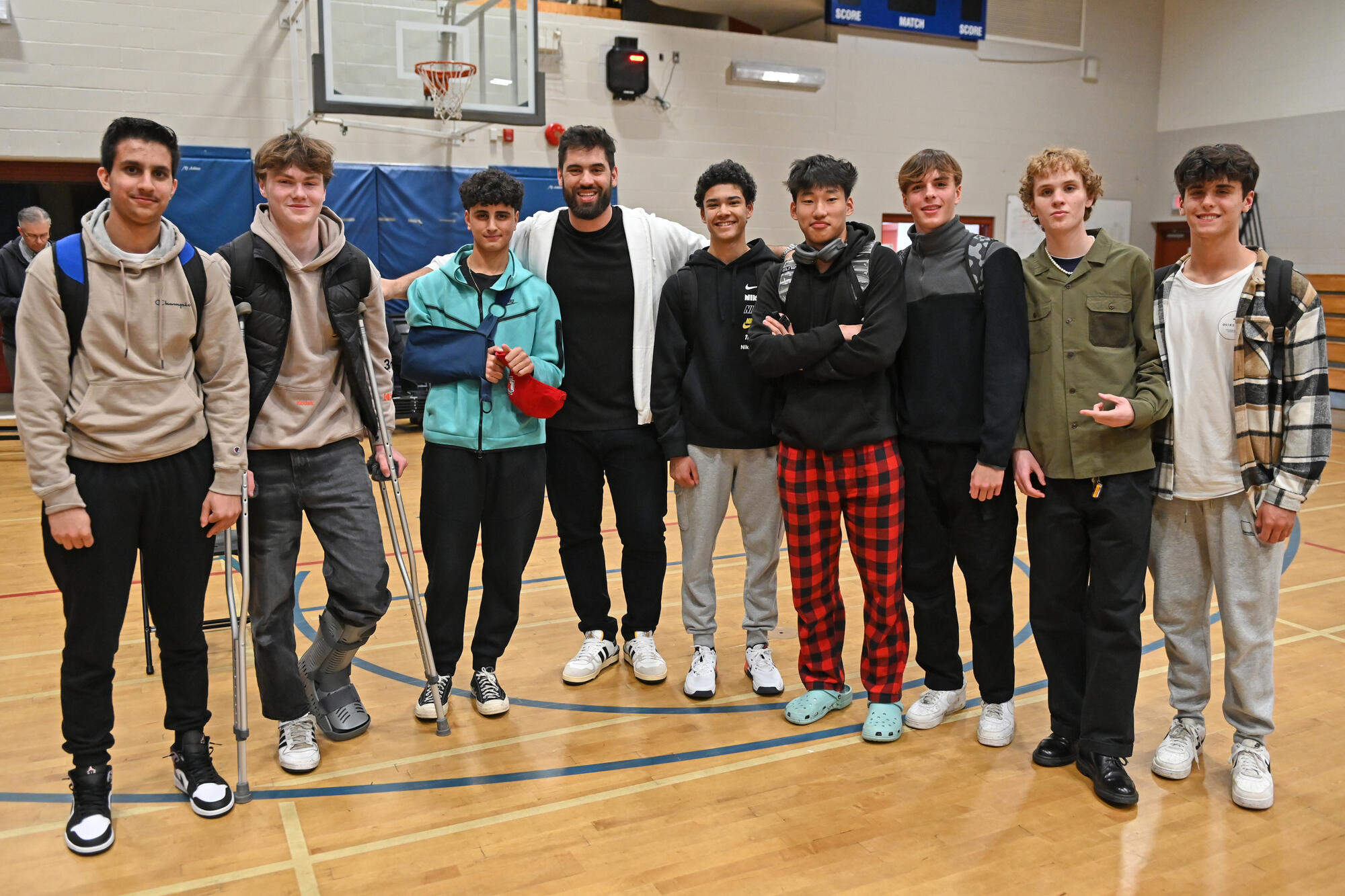
Super Bowl champion and med school graduate Laurent Duvernay-Tardif spoke to Senior School students about his life in sport and following his passions as the keynote speaker during Health and Wellness Week Friday.
Duvernay-Tardif is a former Kansas City Chiefs and New York Jets offensive lineman who also holds a Doctor of Medicine and Master of Surgery from McGill University. In addition to his professional football career, Duvernay-Tardif has worked in the medical field. When the COVID-19 pandemic hit, he opted out of the 2020 NFL season to work in a care facility in Quebec. For his commitment to community and health by working on the frontlines, he received the 2020 Lou March Trophy as Canada’s Athlete of the Year, Sports Illustrated’s 2020 Sportsperson of the Year award, and the Muhammad Ali Sports Humanitarian Award.
Students and teachers were eager to learn about his journey, and his ability to balance physical and mental health. Below are a couple of questions and answers from his talk:

If you could give one piece of advice to someone who aspires to play professional sports, what would it be?
I would say not to put all your eggs in the same basket. Keep an open mind to cross-training and try different sports, and stay active in different ways. I think it helps you tremendously.
At some point we can get overspecialized in what we do and I think that's detrimental to our athletic ability overall. And have other spheres to help you grow better when things don't go well, because it's never always going to go well; you're always going to face adversity. You have to face it and you have to find tools to help cope with that.
What is the most significant thing somebody told you about your mental health?
I was working with my sports psychologist a lot on the importance of emotions. I play a sport that is really contact-based and it's a lot of stats and data. There isn't a sensitive approach to how you feel as a human being. In order to perform in the NFL, you need to get hyped up, you need to be in the moment and be locked in. But if you get too much emotion, then you're jerking away from that focus. The challenge of football is to block somebody as hard as you can for three seconds but still being able to see everything around you and be able to anticipate what might happen.

For me, it came by being close with my emotions. Don't only visualize yourself having success, visualize how you're going to react to failures. How are you going to feel when you know that this drive was destroyed or this scoring opportunity has been cancelled because you screwed up? How are you going to get back on the field? So for me, I try to visualize how I will feel in those moments.
How do you mentally prepare for a game?
For me, when it comes to sport, routine is the only key to success. The way you train every Tuesday is the same. Every Wednesday is the same practice, I eat the same thing, I go to bed at the same time. And then Thursday I practice the exact same thing. Then Friday we practice at the exact same time, you have therapy with your sports psychologist at the exact same time. And no matter if you're playing at home or you play away, you always sleep at a hotel because you need to put yourself in game mode the night before. At 7 o'clock at the hotel, you have your meeting and you go to bed. I would re-watch my notes and break it down the exact same way so when you wake up in the morning, you're already in to game mode. That way when you get to the stadium, you're not anxious or surprised. Knowing and expecting what's going to happen, having that routine, really helps you cope with the stress. And by the time the first play happens, you're looking forward to it.


